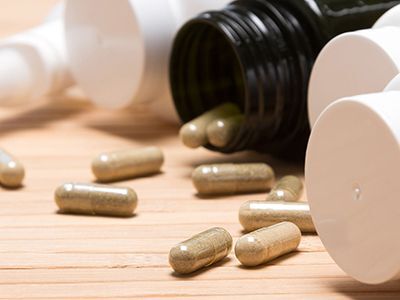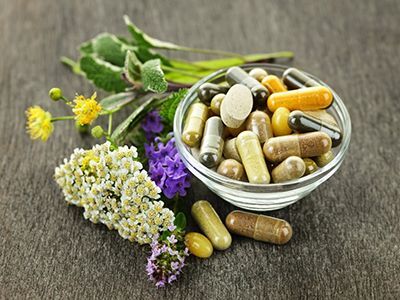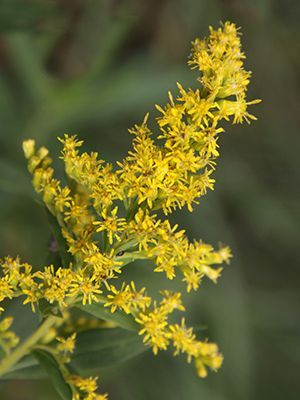Guide to Buying Nutritional Supplements
authored by Taylor Appel, Registered Herbalist (AHG)

Navigating the world of nutritional supplements can be confusing and overwhelming – there’s a vast amount of information available and a wide variety of claims. Unfortunately, while the supplement industry is designed to support health, lack of regulation threatens this objective and may even put people at risk. By understanding some of the nuances of the supplement industry, you can hopefully make more confident and sensible choices when it comes to selecting a botanical or nutraceutical brand to trust for yourself, a loved one, or a patient.
The sad truth is that many companies and regulatory agencies care much more about profitability than the safety, purity, and efficacy of their products and how they truly impact various health outcomes. There are plenty of erroneous claims made by supposedly “reputable” companies, mostly mainstream brands owned by large corporations that tout impeccable testing and data to support their products. Ironically, much of the science backing these products is paid for by the companies themselves, and is therefore biased and questionable. In addition, variables such as sourcing and adulteration can greatly impact the quality and efficacy of a nutritional supplement or botanical product.
The regulatory body tasked with guiding the safety and efficacy of supplements is the Food and Drug Administration, or FDA. Unfortunately, their reputation has been criticized for years for its “regulatory processes”, or lack thereof. Some of the guidelines manufacturers must adhere to, if operating under the FDA compliance, include, but are not limited to:
- Registering their facilities with FDA
- Following Good Manufacturing Practice (cGMP) regulations
- Must include nutrition information, ingredient lists, the manufacturer, packer, or distributor’s name and address, and contact information for receipt of adverse event information on ALL their product labels
- Including information on major food allergens on their labels
- Complying with requirements to disclose bioengineered ingredients on their labels
- Obtaining premarket FDA authorization for certain product claims
- Including disclaimers on all labels for certain product claims1
So, how do we know which brands to buy? Recognizing trustworthy brands can be a challenge, but focusing on the type of testing companies utilize and what FDA guidelines they adhere to, may provide insight into their overall quality of the product or brand in question.

Key terms to consider when buying a nutraceutical or nutritional supplement:
Certificate of Analysis (COA): Documentation of the specific compounds present in a product, including, but not limited to, specific organoleptic characteristics, potency, isolates, and origin of the material in question. Most companies will happily share this documentation when asked, if they are compliant with regulatory processes and testing their products appropriately.
Adulteration: This term refers to the process in which a material, unmentioned on the label of a product, is unintentionally or intentionally added to a product before sale. In a recent study reported in the BMC Medicine journal, it was noted that, “59% of the products contained plant species not listed on the labels and most commercial herb products including adaptogens lack active constituents."2 This is a concerning statistic that sheds light on the severity and prevalence of this issue.
Standardization: This statement implies that the product in question meets a specific, prescribed set of standards or inherent characteristics that correlate to the qualitative and quantitative claims set by a product company and/or laboratory. Standardization also implies that the potency and efficacy of the product will stay the same though its production; this process allows for accurate dosing and more acute therapeutic effects.
Third-Party Testing: The Food and Drug Administration, or FDA, does not analyze or validate any nutritional supplement for purity of the ingredients, or whether they're contaminated with heavy metals, pesticides, or bacteria before they are allowed to be sold. This is where third-party testing steps in and extensive testing, done in certified laboratories, ensures products contain what is written on the packaging – nothing more, and nothing less.
Before purchasing a nutritional supplement, use the guidelines above to vet the brands that interest you. This should include understanding their lab testing procedures, and, ideally, obtaining a certificate of analysis for any products you may want to buy.

When sourcing a botanical-based nutraceutical or supplement, there are a few other considerations that should be made due to the nature of these products, including:
Top 3 considerations for purchasing a botanical supplement:
Species and Genetics of the plant material: Ensure that the product you are seeking contains the correct species of the desired plant because although some plants share a similar name or family, they may have vastly diverse reactions once consumed or used for their therapeutic purposes.
Preparation: Roots, leaves, flowering and other parts of a plant are treated differently when being manufactured to produce botanical or nutraceutical supplements. How they’re processed depends on the desired medicinal results, and it is important to understand the extraction process used to create whatever product or supplement you’re wanting to consume.
As Donald Yance, founder of Mederi Center and Natura Health Products states, “the quality and composition of the active components can vary according to several factors, including plant species, method of cultivation, as well as the age and part of the plant used.”3 Regionality, sustainability of harvest and soil health, types of extract solvents, storage environment, and time before packing should all be seriously considered before purchasing any botanical supplement.
Source: At the end of the day, you want to feel you can trust the company who creates the products you consume to support your health. Testing and manufacturing procedures are paramount. Although some companies claim to have the cleanest and most potent materials in their products, research finds many of these brands will dilute or cut the original substance with lesser quality products. According to the World Health Organization most herbal products that are tested are poor quality, including considerable product substitution, adulteration, contamination and use of fillers.4

In a recent blog covering adulteration, Donald Yance highlights this issue clearly:
“From 2007 through 2016, the FDA identified 776 adulterated dietary supplements, and 146 different dietary supplement companies were implicated. Most of these products were marketed for sexual enhancement, weight loss, or muscle building, with 157 adulterated products containing more than one unapproved ingredient."3
Although these statistics may seem alarming, we can use this knowledge to make more sensible supplement choices by turning to brands that are truly trustworthy.
If the information above seems overwhelming to digest, we’ve made it easier on you by providing a list of brands we trust. We’ve done the research for you and only recommend or carry brands in our Mederi Center Apothecary that have been thoroughly vetted by our founder Donnie Yance, and further confirmed or endorsed by our practitioner team. Mederi Center practitioners have found a broad range of companies we trust and utilize within our therapeutic protocols.
The list below are brands that are well-trusted, tested, and used by Mederi Center practitioners and staff alike.
Top Ten Brands We Trust at Mederi Center:
- Natura Health Products
- Designs for Health
- Pacific Botanicals
- Banyan Botanicals
- Perfect Supplements
- Gaia Herbs
- Enzyme Science
- Metagenics
- Mountain Rose Herbs
- Seeking Health
Additional Brands We Use & Trust:
- Klaire Labs
- Crucial Four
- Botanica
- Legendary Herbs
- Herbalist and Alchemist
- Herbal Vitality
- NuLeaf
- Mother Earth Labs
- Starwest Botanicals
- Douglas Laboratories
- Nature Spirit Herbs
Further Reading:
Whose Dietary Supplements Can You Trust and Why? by Donald Yance, CN, RH (AHG)
Do You Know What’s in Your Supplements? by Donald Yance, CN, RH (AHG)
Join the Mederi Center community by signing up for our email list! We send several emails a month with product promotions for patients, practical tips for healthy living, blogs written by our practitioners, information about events, and other news. You can unsubscribe at any time.
Learn more about becoming a patient >>
References
- Nutraceuticals World. 2022. Safe & Accessible: Dietary Supplements Are Far From ‘Unregulated’. [online] Available at: https://www.nutraceuticalsworld.com/issues/2022-06/view_columns/safe-accessible-dietary-supplements-are-far-from-unregulated/ [Accessed 1 August 2022].
- World Health Organization, Quality assurance of pharmaceuticals: a compendium of guidelines and related materials. Good manufacturing practices and inspection, vol. 2, WHO, Geneva (1996).
- DonnieYance.com. 2022. Whose Dietary Supplements Can You Trust and Why? | DonnieYance.com. Available at: https://www.donnieyance.com/whose-dietary-supplements-can-you-trust-and-why/ [Accessed 1 August 2022].
- Steven G Newmaster1*, Meghan Grguric2, Dhivya Shanmughanandhan3, Sathishkumar Ramalingam and Subramanyam Ragupathy, DNA barcoding detects contamination and substitution in North American herbal products, Newmaster et al. BMC Medicine 2013, 11:222 http://www.biomedcentral.com/1741-7015/11/222.


